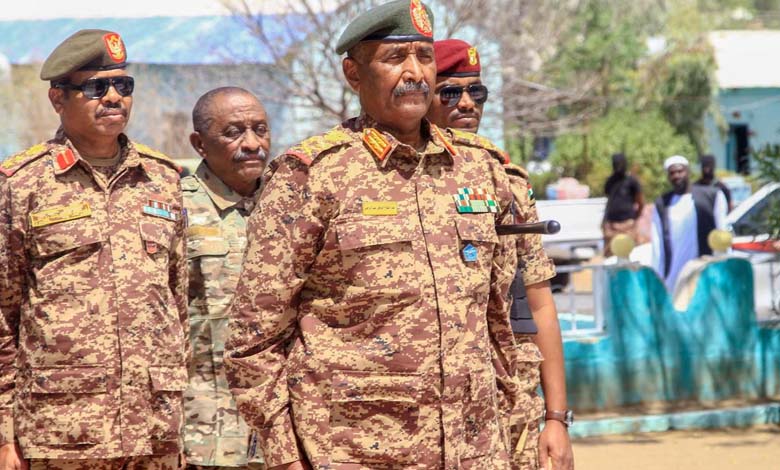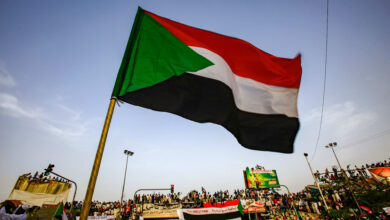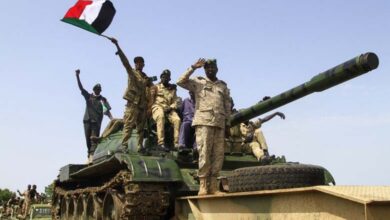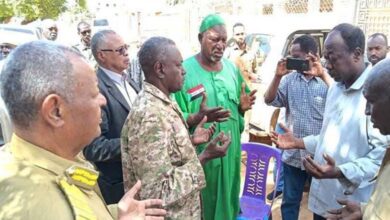The Islamic Movement’s Retreat and al-Burhan’s Silence: Questions Surround the Political and Military Cover Behind the Strategic Strikes in Port Sudan

Sudan has recently witnessed swift developments carrying deep political and security implications, particularly following a high-precision airstrike that targeted sensitive military sites in Port Sudan. This attack revealed the deaths of dozens of foreign experts who had recently been brought in to train army units and Islamist battalions on advanced weaponry and modern defense technologies.
-
Mysterious Airstrike in Port Sudan Reveals Involvement of Foreign Experts and Iranian Arms… Silence from al-Burhan and the Islamic Movement Raises Questions
-
The Military and al-Burhan’s Ties to the Islamic Movement: Secret Agreements and New Fronts
A well-informed military source within the Port Sudan authority confirmed to the newspaper that the airstrike was carried out by drones that precisely targeted the residences of these experts, killing a large number of them. The strike was described as unprecedented in its planning, accuracy, and timing.
Questions About Who Carried Out the Strike
Although the army insists that the Rapid Support Forces were behind the operation, sources close to military and strategic analysis centers have cast doubt on the RSF’s ability to possess or operate drones with such advanced specifications. This opens the door to critical questions about the real party behind the strike and the hidden motives behind it—especially given indications that advanced targeting and guidance technologies were used, which are only accessible to specific foreign intelligence-backed actors in the region.
-
The Political History of the Islamic Movement in Sudan and Its Relationship with the Army: The Case of al-Burhan
-
The Attempted Assassination of al-Burhan Sparks Debate on the Involvement of the Islamic Movement and the Army
Weapons Shipments and the Battle for Influence
The strikes—focused on Port Sudan Airport and the Dagna military base—targeted newly arrived weapons shipments, believed to include advanced systems and drones intended to bolster units affiliated with the Islamic movement. This development raises pressing questions about the movement’s role in the current military landscape and the possibility that it is being used as a parallel force within the army, especially amid growing signs of internal struggles over who holds military and political decision-making power.
The Islamic Movement in Withdrawal
What is most striking is not only the ambiguity surrounding the perpetrator but also the silence of the Islamic movement, which only recently championed resistance and confrontation. In recent weeks, the movement has shown signs of unprecedented retreat and collapse, amid reports that several of its leaders have fled abroad, effectively abandoning their positions on the ground. This has reinforced the impression that they may be seeking to detach themselves from any military or political responsibilities within the ruling coalition.
-
Precision Strikes Shake Islamist Camps in Port Sudan: Mass Escape and Suspicious Silence from al-Burhan
-
Precision Strikes Expose Shadow Alliances: Foreign Experts Killed and Islamists Unveiled in Port Sudan
This silent withdrawal has reignited debate over the Islamic movement’s relationship with the military institution—especially as growing evidence suggests the army no longer sees it as essential. In fact, the leadership’s silence hints that new arrangements may be underway, far removed from the group that has sought to maintain power for decades.
al-Burhan and the Islamist Dilemma
Amid all this, the attitude of army chief Abdel Fattah al-Burhan is notable for his apparent lack of concern over the losses suffered by Islamist-backed units or the transformations within their ranks. Several analysts interpret this as a sign of his intent to move beyond the alliance with the Islamic movement—perhaps even to gradually eliminate its influence—as part of a broader plan to restructure the country’s security and military framework.
-
Strategic Strike in Port Sudan Reveals Foreign Involvement, Iranian Arms, and Complicity of the Islamic Movement
-
Sudan Between the Hammer of the Military Islamist Alliance and the Anvil of Democratic Transition
Are we witnessing the actual end of the Islamic movement’s role in Sudan? Do these airstrikes send a regional and international message about a coming shift in influence within the country? Or do they reflect a deeper internal conflict within the military establishment itself?
These pressing questions are now at the forefront, opening the door to a highly complex phase in Sudan’s trajectory—one being shaped by drones and shifting allegiances, both in the trenches and the halls of power.












